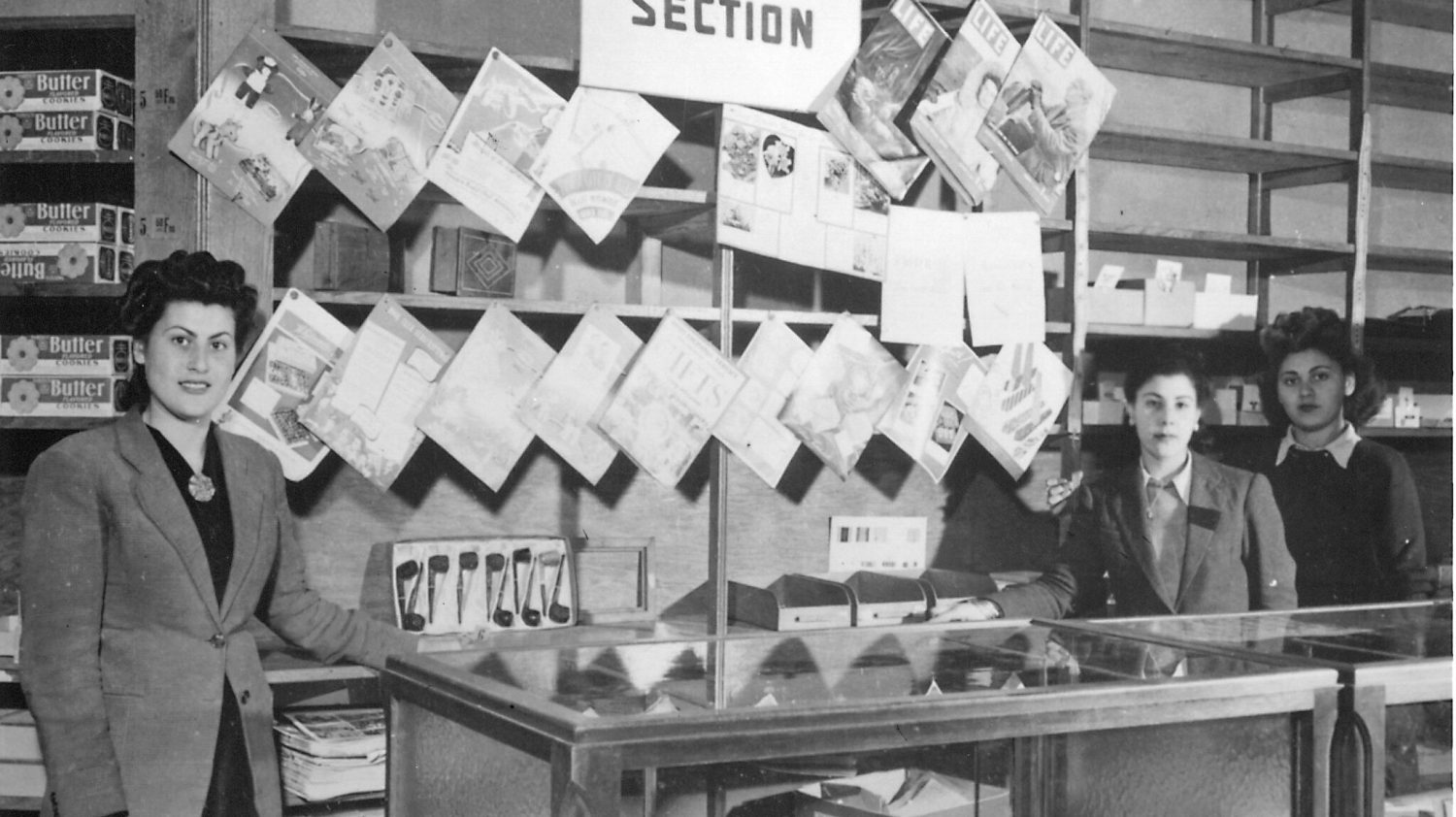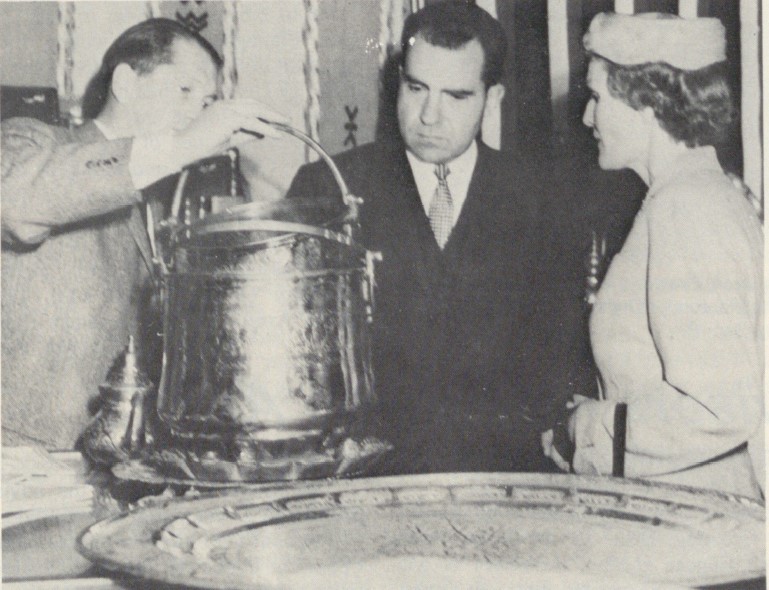#FlashbackFriday: December 1963—the Exchange’s Morocco Era Ends

Sixty-one years ago this month, at the end of December 1963, the Exchange closed its operations in Morocco, where it had operated stores since World War II.
During the war, wherever U.S. troops were stationed throughout the North Africa-Mediterranean Theater, post exchanges were also there, operated by the Army Exchange Service or individual military units. The locations included Casablanca, Morocco, where Atlantic Base Sector headquarters for the theater were established on Jan. 20, 1943.
After the Air Forces Europe Exchange (AFEX) was activated in 1951 as an independent exchange system to serve Air Force troops in England, France, Southwest Asia and North Africa, the Moroccan Exchanges became part of the system. Among the visitors to Morocco exchanges were then-Vice President Richard Nixon and his wife, Pat, pictured below at a store at Nouasseur during a 1954 tour of U.S. bases in Europe and North Africa.

AFEX ceased operations in Morocco in 1963 when the treaty which granted America the rights to maintain air bases there had expired.
In a 1974 Exchange Post story, Arthur C. Wallace, then deputy director of the Services Division, recalled his experiences in 1963 in Morocco, where he was one of the few associates left during the phaseout of American air bases at Nouasseur, Ben Guerir and Sidi Slimane.
Wallace said that he and others were so isolated that he didn’t learn about President Kennedy’s assassination until two days later, when he read about it in a French newspaper in Casablanca.
Wallace was in Morocco to supervise the gradual reduction of all Exchange activities, including retail outlets, cafeterias, liquor stores and concessions. The job also included the removal of all Exchange-owned equipment, vehicles, fittings, fixtures and prefabricated buildings.
“It should be noted … that luxuries such as Armed Forces Network radio, movie theater, officer and enlisted clubs, library and hospital closed when the main force of troops departed,” Wallace said. “Stars and Stripes, the only English newspaper available, was received via air courier from Spain — when someone remembered to put a supply aboard the plane.”
Wallace lived at a base at Nouasseur, 20 miles from Casablanca. An installation had been built to accommodate 20,000 men. The only contact between the base and outside world was by telephone, which wasn’t always dependable. “One day as I was telephoning Spain to coordinate a road convoy, the telephone went dead,” Wallace wrote. “Looking out my office window, I saw a man clipping wire from the poles while an accomplice quickly rolled up the strands on a piece of wood.”
Near the end, theft had become so rampant that several hundred infantrymen from the Royal Moroccan Army moved into each base for added security. Along with the Moroccan troops came flocks of sheep, which quickly sought out the only green grass on base — the golf course. “I can remember playing one of the last rounds on the course,” Wallace wrote. “After slipping and sliding on the freshly ‘fertilized’ greens and hitting two sheep with long drives, I quit.”
In the present day, the Exchange’s only North African store is in the American Embassy in Cairo, Egypt. More than 2,000 miles east of Morocco.






Great story. Another chapter in the Exchange history